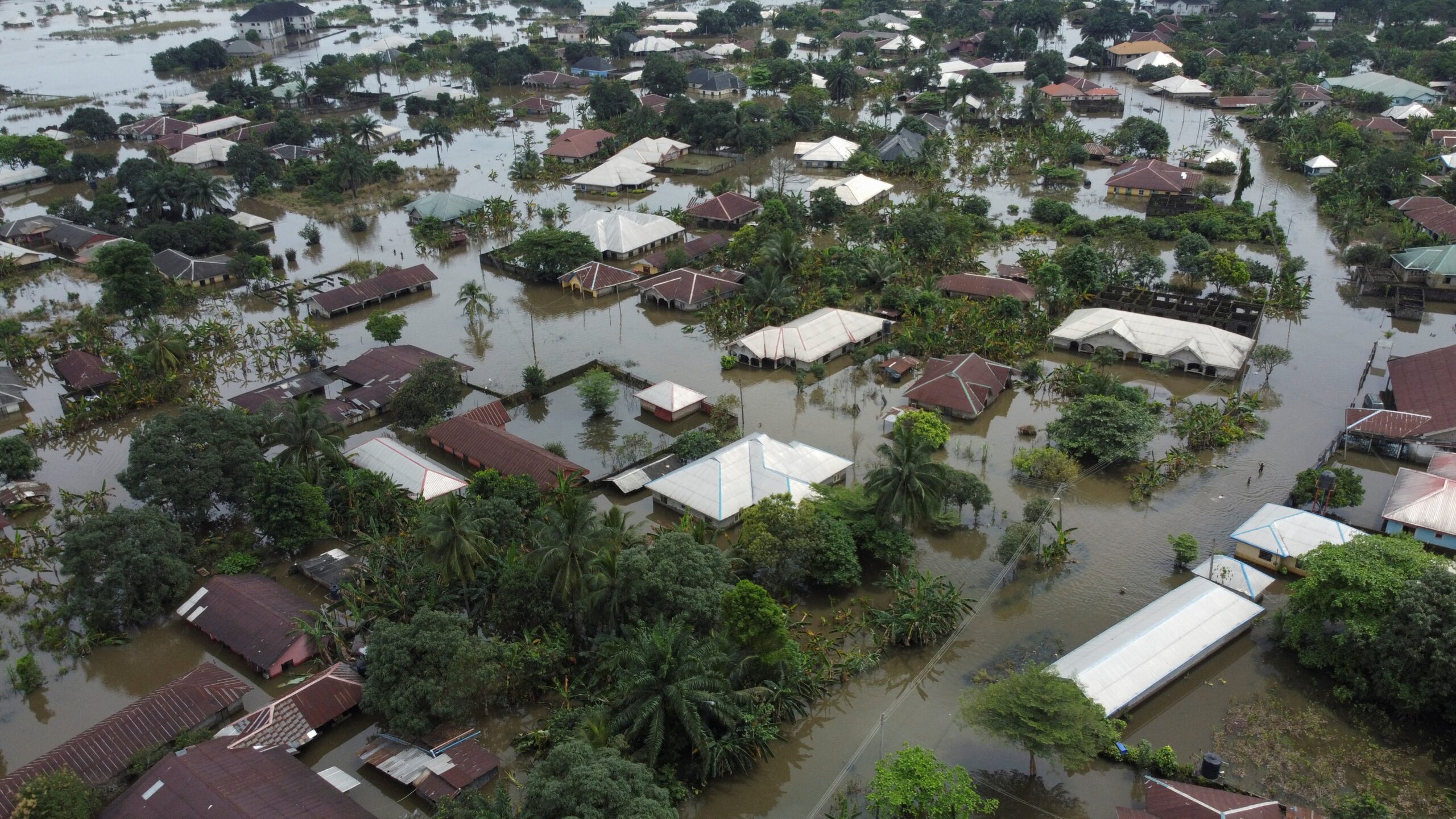

The climate crisis disproportionately affects the global south. In Nigeria, climate change is no longer a threat but a reality.
This year’s flood in Nigeria has affected millions of people: homes, farms, schools – our country has lost billions of dollars to the damages. It has affected more than two-thirds of Nigeria, which makes it a total disaster. Yet this is just one of the several realities of the climate crisis we are faced with. This has been our reality for a very long time.
Currently, in my region – west Africa – the climate crisis is exacerbating armed conflict and violence between farmers and herders, due to resources control and the loss of livelihoods. It is the same in other regions of Africa. Climate change is driving hunger, food insecurity and poverty due to environmental instability.
It is so widespread that a simple “loss and damage fund” is not negotiable. Hence, without climate finance we cannot solve the climate crisis – and without climate finance, we cannot adapt to build resilience against the climate crisis.
Without climate finance, loss and damage become inevitable. The reality of the climate crisis is both far and near reaching. This is why the IPCC says that limiting global warming to 1.5 degrees would require rapid and unprecedented changes across all aspects of society.
From recent studies, the economic cost of loss and damage by 2030 has been estimated to be USD 400bn a year and between USD 290bn and 580bn in developing countries alone. By 2050, the economic cost of loss and damage in developing countries is estimated to be between USD 1 to 1.8 trillion.
Lake Chad, which was once one of the largest lakes in Africa, is shrinking. We have lost 90 per cent of it to environmental instability. More frequently, we have been faced with climate-related events such as drought, flood, cyclones and other disasters at the same time.
We cannot even recover from one crisis before we are being hit by another. It is taking a massive toll on us. Just a single crisis can displace millions of people – let alone multiple crises. We are in a race against the climate crisis. And negotiations are taking up all our space and time, when what is needed is real and urgent action.
Cop has been taking place since before I was born, yet nothing seems to have happened. What we need is more action and fewer negotiations. If the promises and commitments made from previous Cops had become a reality, the world would not be in the state of planetary emergency. What happened to the pledge made by wealthy nations to “mobilise” $100bn in climate finance annually by 2020 to help vulnerable nations deal with climate change?
How about the Paris climate agreement? Multiple pledges, once again, yet here we are: seeing big polluters buying their way out through carbon credit. Not meeting our commitments is as dangerous as not making any commitment at all.
At Cop27, we need to listen to the science and not the big polluters who want to influence the outcomes of the conference to suit their selfish agenda. The climate crisis doesn’t just end in signing an agreement, but making it happen. We need to make every single Cop climate conference count through action and more action. We need to treat it as seriously and as immediately as we did the Covid-19 pandemic.
According to reports, Lagos state in Nigeria could be covered by water before the end of this century due to the rise in sea level. Making commitments of carbon neutrality by 2050 is like saying we will stop the Covid-19 pandemic by 2050 without a vaccine. The “vaccine” to end the climate crisis is climate finance.
To keep up to speed with all the latest opinions and comment sign up to our free weekly Voices Dispatches newsletter by clicking here
We should also remember that just because Cop27 is held in Egypt, does not mean that western countries don’t have to get involved. We should demand equal representation, especially from marginalised communities.
The fact that it is in Egypt does not necessarily mean it should be an “African Cop”. We do not need to label it that way. Whether it is held in the UK or the US, what matter most is the fact that agreements are reached and brought into reality.
Cop27 should, however, focus on the vulnerable countries that are affected the most by the climate crisis.
We have fallen short of commitments from previous Cops. Here we are, at Cop27, with another chance. I look forward to the day where climate conferences will go beyond negotiation to translate into real time action. The more we delay the action needed, the greater the loss and damage. To all of us.
Oladosu Adenike is a climate justice campaigner, eco-feminist and eco-reporter based in the Lake Chad region

